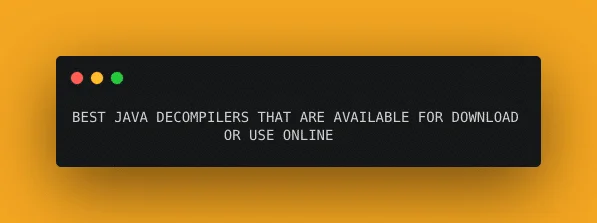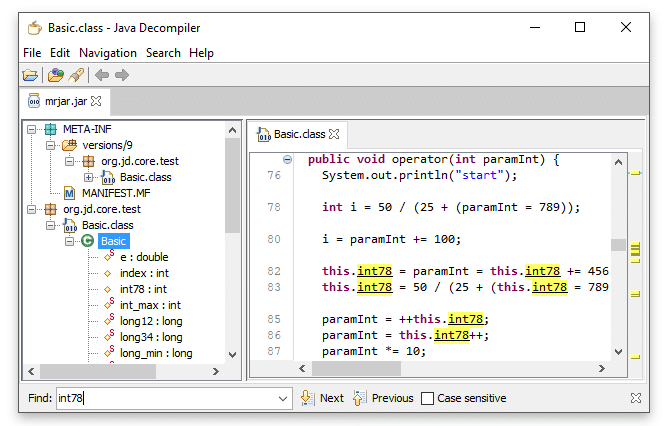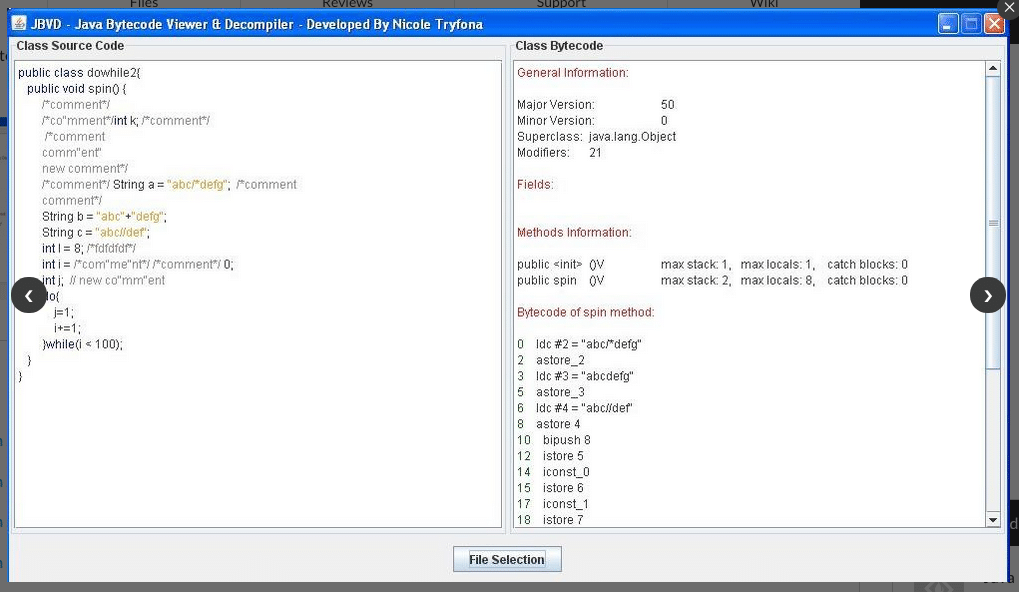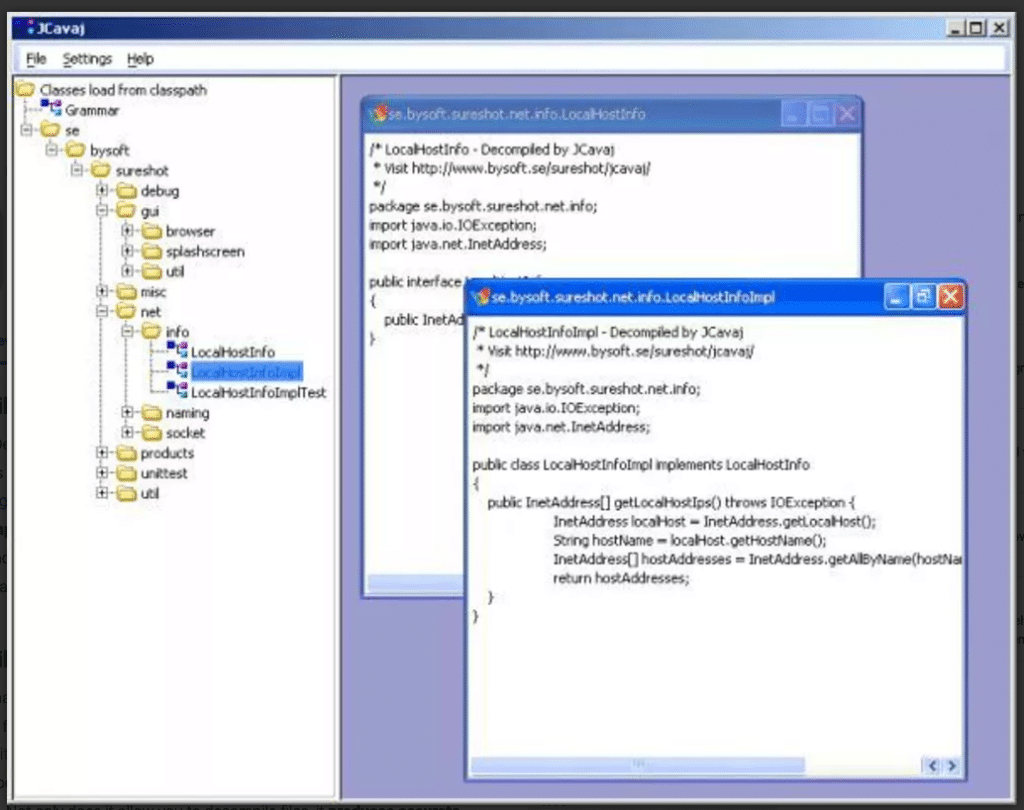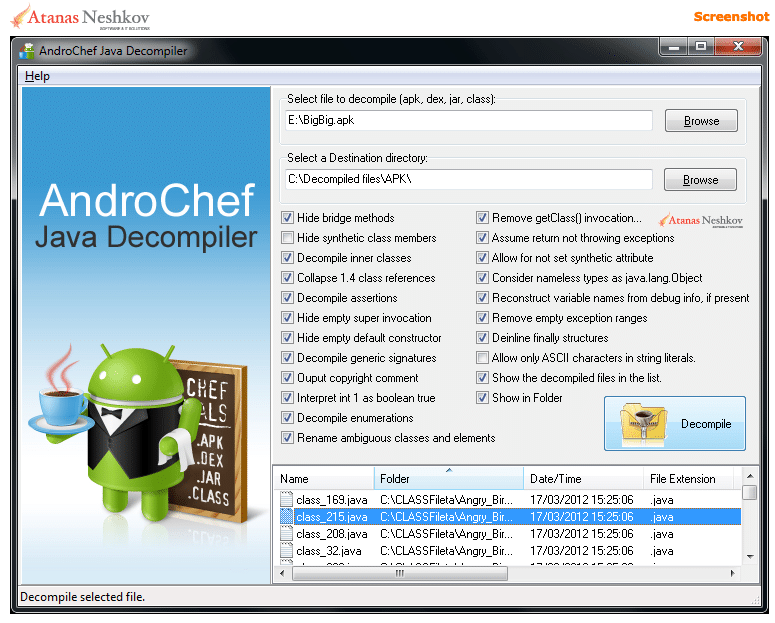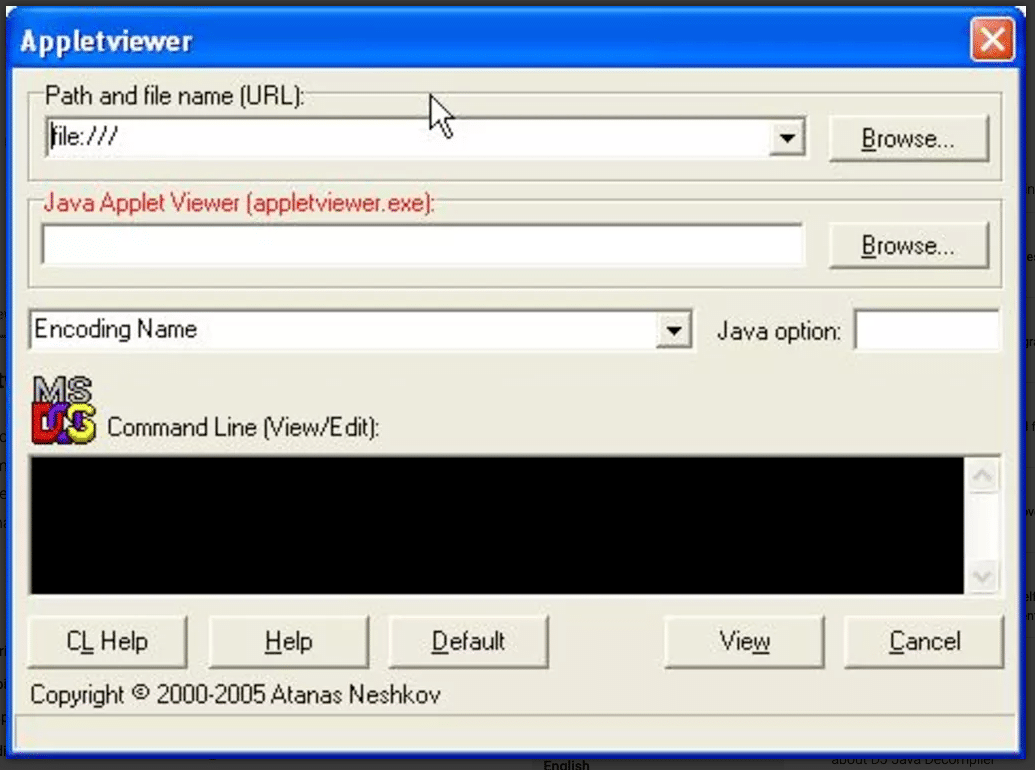If you are a programmer or even a beginner in this field of programming, then you probably would have heard about Java. Usually, people say to choose Java as an initial programming language. Well, before moving forward to know about Java decompilers, let’s know about Java and how it works.
The best thing that makes Java a popular programming language is the fact that it is platform independence. This means that the programmers can run the Java programs on any computer or laptop, with a condition that the JRE ( Java Runtime Environment) is installed in the system.
Apart from being so compatible with all OS and computers, it is also an object-oriented programming language. The developers get to know about thousands of libraries and components of Java, which can really make your coding experience very simple and easy.
So, now that you have got an idea about the Java programming language, let us come back to our discussion of Java Decompilers. Well, many of you might be knowing that to run programs you need a compiler, but then what is Decompiler. Don’t need to worry, let’s find out the difference between a compiler and a decompiler.
What is a Compiler and a DeCompiler?
The code written in any programming language is not machine-readable so we need to make it understandable for the machine(computer). In order to do this, we use a compiler. So basically a compiler is a computer program that translates code written in any particular programming language to any targeted language(generally machine-readable language).
[su_note note_color=”#FFF9C4″] A compiler takes the entire program as input translates it as a whole and also generates an intermediate code using some amount of memory in the process. It displays the errors generated during the process of compilation at the end of the compilation. [/su_note]
In order to achieve success translation a compiler must itself be free from any kind of bug, it must generate correct machine code and the compiler should itself must run fast(i.e. total compilation time must be proportional to the program size).
The architecture of any compiler comes in various variations depending on various factors. As it depends on which programming language is to be compiled(be it C++, Java, or Scala). Be it different programming paradigms such as object-oriented or functional. And also on the different computer architectures( x86 or ARM) and the kind of operating system where it will be used.
All in one there are various aspects of building a good compiler. Examples of different compilers are MinGW, Portable C Compiler, Borland Turbo C, Free Pascal, etc.
[su_label type=”success”]Suggested read[/su_label] Ways in JAVA to get hostname, localhost and IP Address
Decompiler:
A decompiler is very similar to a compiler as it operates similarly but in reverse. Compiler converts code written in programing language to machine-readable code but unlike compiler, a decompiler is like a disassembler and works in reverse as it converts low-level language executable code into a format which can be easily read by programmers.
A decompiler engages various techniques such as Data Flow analysis, type analysis, program analysis, and structured to perform its decompiling process in the most efficient manner possible. It reverses binaries of a low-level language into high-level language.
Some examples of DeCompilers are JAD Decompiler, DJ Java Decompiler, JBVD decompiler, etc.
How does a Decompiler Work?
The steps of a decompiling operation can be understood by examining the working of various decompilers of any programming language such as JAVA.
[su_note note_color=”#FFF9C4″]In very laymen terms, a decompiler works in reverse to that of the compiler as it takes low-level language code(executable code) as it input and converts it into a high-level source code, which can be further recompiled without any modifications.[/su_note]
The class file generated by the Java Compiler contains a lot of information about the design of the program written initially. It may contain this;
- The name of the class.
- The names, types, and modifiers of the class fields.
- The names, signatures, and modifiers of the methods.
- The bytecode of the method, which is pretty high level and can be easily mapped back to source code.
- The names of the local variables
- The bytecode position to line numbers mappings
This information is ample enough to recover a very similar source code to what you have written. Some aspects that the decompiler needs to be smart about are:
- Type inference for local variables, especially for generics as they are erased before the class file is generated.
- Recovering structured bytecode. This can be as simple as converting backward jumps to loops and forward jumps to conditional statements.
Let’s take a look at the list of best class to java decompilers available for Mac (.dmg), windows (.exe), and Linux (.pkg).
[su_label type=”success”]Suggested read[/su_label] 10 best Intellij themes ideas
There is an abundance of options for choosing a decompiler. Some of these are listed below:
8 Best java decompilers
1. JD Project
JD Project the most subsequently used Java Decompiler. It adds to its versatility as it has also been provided offline by its developers. It is a multi-platform decompiler as it is available on all platforms Windows, Mac OS, and Linux.
The JAVA Decompiler Project aspires for the development of tools that can decompile and analyze Java 5 byte code and also its later versions.
It provides decompilers in different flavors such as JD-GUI, JD-Core, JD-Eclipse, and many more. Plugins for every mode are made available by the developers for free.
2. Procyon
This decompiler was developed by Mike Strobel and the team. This is a very highly efficient decompiler as it can decompile nearly any java class file. Procyon is a suite of Java metaprogramming tools focused on code generation and analysis.
It includes different libraries such as Core FrameWork, Reflection FrameWork, Expression Framework, and Java DeCompiler.
Procyon is a standalone front-end for the Java Decompiler. It has been used by Konloch in developing their open-source java decompilation, disassembly, and debugging suite- Bytecode Viewer.
[su_label type=”success”]Suggested read[/su_label] Best NoSQL databases list
3. JBVD – Java Bytecode Viewer & Decompiler
JBVD stands for java bytecode viewer and decompiler, which uses an open-source library named java-assist for converting .class files into Java source files i.e the decompilation process.
To work it requires JAVA to be pre-installed on the device where the use is intended.
It is only available for Windows and can be downloaded for free.
4. Cavaj Java Decompiler
This cavaj decompiler is another powerful as it can convert bytecode to Java Source Code quite efficiently and accurately.
It is only available only on Windows which accounts for one of its drawbacks.
Another of its drawbacks is that cavaj does provide syntax highlighting, which makes writing the code a little harder.
Cavaj Decompiler is a graphical freeware service that can regenerate java source code from .class file for java applets, jar and zip files reconstructing accurate java source code.
5. AndroChef Java Decompiler
If someone is looking for a powerful Windows Java Decompiler then your quest can finally meet its end. AndroChef is another Java decompiler only running on Windows OS.
It can view, analyze the byte code, and then can regenerate java source code from it to utter precision and accuracy.
AndroChef can easily decompile most of the java6, java7,java8, .jar files, java applets, and .class files very easily.
It supports all versions of Windows from Windows XP and above up to the latest version of Windows 10.
[su_label type=”success”]Suggested read[/su_label] Best Programming tools for Programmers productivity
6. DJ Java Decompiler
This is yet another windows only java decompiler and disassembler for java. It is also a cross-platform software that has been packed with high competence of reconstructing original source code from compiled .class file.
DJ Java decompiler is provided for Java decompiling as a GUI- tool and also in the forms of plug-ins for Eclipse and IntelliJ integrated development environments.
7. CFR Decompiler
It stands for Class File Reader and is highly precise in its operations. It is such a versatile decompiler by its use as it was originally written in Java 6 so it has zero compatibility issues with any prior version of java 6 and will decompile all modern java features with support up to java 14 including all versions between java 6 and java 14.
While decompiling it all supports the latest features of java like lambdas without any fuss. It comes with a command-line tool that makes the whole process of decompiling a simpler, smoother, and faster.
The only drawback with this compiler is that it does not come under any open-source program.
8. FernFlower
A little fun fact about this decompiler is that it was the first actually working analytical decompiler for java. It was licensed under the Apache License Version 2.0.
Sometimes while decompiling there is a possibility of overwriting a source code, by the use of FernFlower the possibility of this error reduces.
[su_label type=”success”]Suggested read[/su_label] Best Python Ide for Beginners
Conclusion:
This was a small list of some of the best available Java Decompilers. One can easily download them for free from any of the free open-source platforms available over the internet.
Java decompilers are available in abundance for any operating system be it Mac OS or Linux or Windows and over any integrated development environment.
Try all the Java Decompilers available at hand and best suited for your programming and just keep on developing and sharing your experience with the world.

